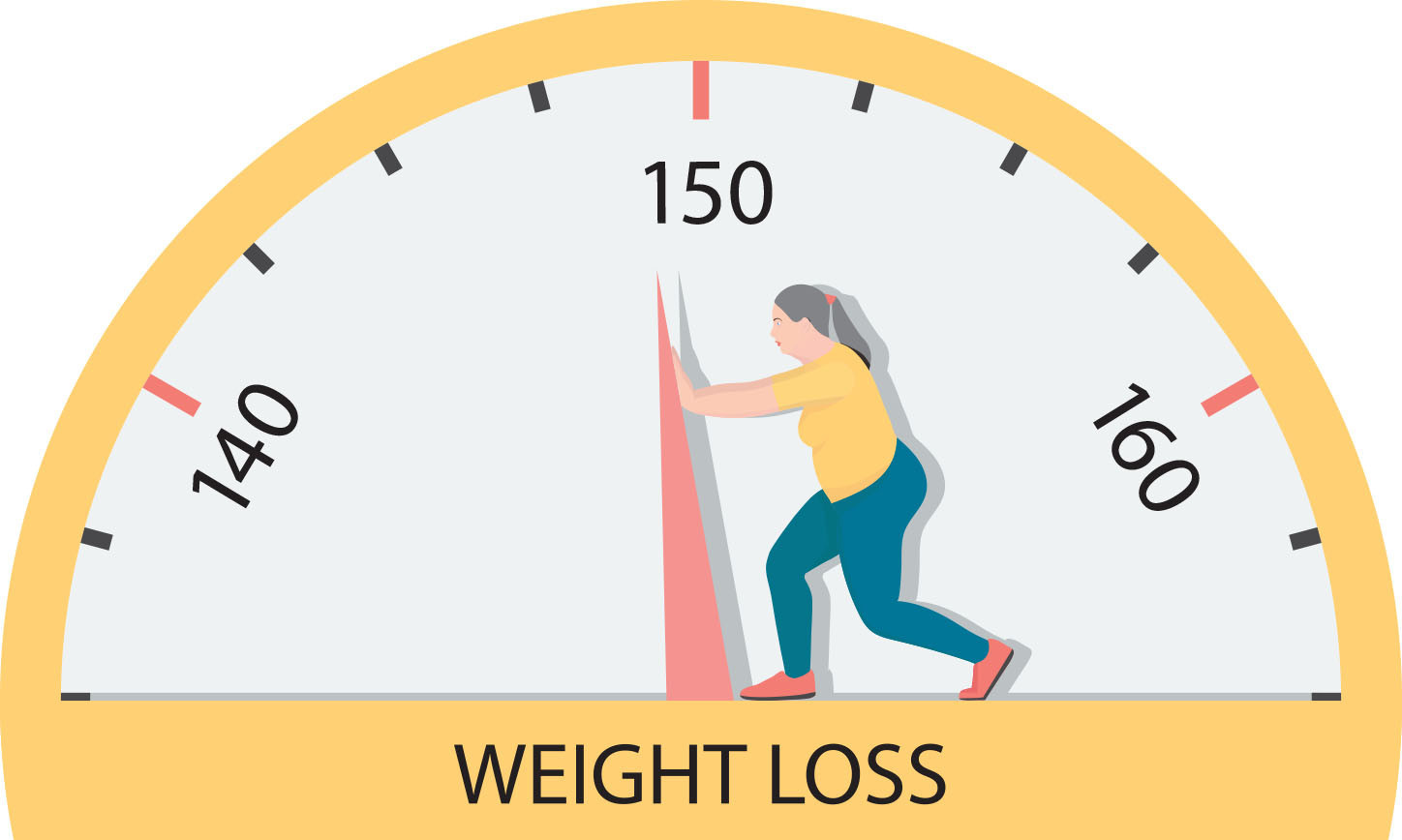
New thinking about plaque in arteries that feed the brain

Want to prevent shifting teeth? Maybe you need retainers

What you need to know about the new dietary guidelines

Food that’s healthier for people and planet can be cheaper, too

New evidence that polyphenol-rich foods help the heart

8 simple ways to reduce ultra-processed foods in your diet

How to curb your stress eating

How to spot Parkinson’s disease symptoms

Heart failure symptoms in women: How they’re different

GERD diet: Foods to avoid to reduce acid reflux
Diet & Weight Loss Archive
Articles
Low fat, low carb, or Mediterranean: which diet is right for you?
Losing weight sometimes takes experimentation. If you give a diet your best shot and it doesn't work long term, maybe it wasn't the right one for you, your metabolism, or your situation. Genes, family, your environment — even your friends — influence how, why, what, and how much you eat, so don't get too discouraged or beat yourself up because a diet that "worked for everybody" didn't pay off for you. Try another, keeping in mind that almost any diet will help you shed pounds — at least for a short time.
Here's a look at three common diet approaches.
Why stress causes people to overeat
Stress eating can ruin your weight loss goals – the key is to find ways to relieve stress without overeating
There is much truth behind the phrase "stress eating." Stress, the hormones it unleashes, and the effects of high-fat, sugary "comfort foods" push people toward overeating. Researchers have linked weight gain to stress, and according to an American Psychological Association survey, about one-fourth of Americans rate their stress level as 8 or more on a 10-point scale.
In the short term, stress can shut down appetite. The nervous system sends messages to the adrenal glands atop the kidneys to pump out the hormone epinephrine (also known as adrenaline). Epinephrine helps trigger the body's fight-or-flight response, a revved-up physiological state that temporarily puts eating on hold.
Belly fat may pose more danger for women than for men
Whittle your waist for better health.
You've probably heard that extra pounds around your middle are bad for your heart. But a new study has found that excess weight in your belly — a body shape doctors refer to as central adiposity — may be even worse for women's heart health than men's.
The study, in the March 6 issue of the Journal of the American Heart Association, involved about 500,000 people (55% of them women), ages 40 to 69, in the United Kingdom. The researchers took body measurements of the participants and then kept track of who had heart attacks over the next seven years. During that period, the women who carried more weight around their middles (measured by waist circumference, waist-to-hip ratio, or waist-to-height ratio) had a 10% to 20% greater risk of heart attack than women who were just heavier over all (measured by body mass index, or BMI, a calculation of weight in relation to height).
Do gut bacteria inhibit weight loss?
Ask the doctor
Q. I just can't lose weight. A friend says that my problem might be due to the types of bacteria that live in my gut. That sounds crazy to me, but is it true, and can I do something about it?
A. Ten years ago, I also would have thought your friend was crazy. Today, I'd say she could well be right. Here's why. We've known for a century that bacteria live in our intestines, but we've assumed that they did little to affect our health. We thought that they were just mooching off of us — taking advantage of the warmth and nutrients in our gut.
Does apple cider vinegar have any proven health benefits?
On call
Q. I have heard a lot about how apple cider vinegar can help improve one's health. Is there anything to this?
A. As with so many dietary fads, apple cider vinegar has seen its share of health claims with little medical evidence to support them. The studies exploring its health benefits have focused on reductions in blood sugar levels and weight loss, but these have been small, short-term trials or animal studies.
Cohabitating couples share heart-related habits, risks
Research we're watching
Couples who live together tend to have similar health habits. But only about one in five couples falls into the "ideal" category for heart-healthy habits and risk factors, suggests a study in the Oct. 26, 2020, issue of JAMA Network Open.
Researchers looked at health data on 5,365 couples from diverse racial and economic backgrounds throughout the United States. Most were in their 40s and 50s. Based on risk factors from the American Heart Association's Life's Simple 7 (smoking status, body mass index, exercise, diet, total cholesterol, blood pressure, and fasting blood sugar), researchers categorized individuals and couples as poor, intermediate, or ideal for each factor and over all.
Can you supercharge the Mediterranean diet?
News briefs
A Mediterranean-style diet is rich in vegetables, legumes, fruits, whole grains, nuts, seeds, poultry, fish, and olive oil, and it's associated with lower risks for heart disease and diabetes. And a "greener" version of the eating style might be even more effective, according to a small, randomized study published online Nov. 23, 2020, by the journal Heart. Researchers — some from Harvard — recruited about 300 sedentary, middle-aged people (mostly men) with high cholesterol or abdominal obesity and divided them into three groups. One received guidance for exercise and a healthy diet; another received exercise guidance and was assigned to eat a calorie-restricted Mediterranean diet; and one group received exercise guidance and was assigned to eat a "greener" calorie-restricted Mediterranean diet with less animal-based and more plant-based proteins (including walnuts and a type of duckweed — an aquatic plant), plus lots of green tea. After six months, people on the "green" diet had lost more weight and inches around their middles, and had bigger drops in cholesterol, than people in the other two groups. "Green" dieters also had steeper declines in insulin resistance, inflammation markers, and diastolic blood pressure (the lower number in the measurement), compared with the other two groups.
Image: © Lilechka75/Getty Images
Bad habits come in pairs
Your partner's flawed health behaviors may be harming your heart.
It's been said that the longer couples stay together the more they look alike. As it turns out, the resemblance may be more than skin-deep. A study published online Oct. 26, 2020, by JAMA Network Open found that couples' health behavior and heart disease risk factors also look alike — for better or worse.
"We know, even from personal experience, that couples share similar behaviors that can affect health, but it was surprising to find the high levels of shared unhealthy behaviors within couples," says the study's lead author, Dov Shiffman, a senior scientific fellow at the medical testing company Quest Diagnostics.
Can taking aspirin regularly help prevent breast cancer?
Experts say there's little evidence that low-dose aspirin therapy brings benefits, and there are some risks.
In recent years, there's been a lot of talk about the potential benefits, and risks, of a regular regimen of low-dose aspirin. While much of the discussion has centered on whether taking low-dose aspirin can head off cardiovascular disease, some of the focus has also been on breast cancer. Can regular doses of this over-the-counter pain reliever reduce your risk of this common cancer?
For a while there were hints that the evidence was leaning that way. Back in 2017, this area of research, while still inconclusive, was somewhat promising. For example, a 2017 study published in Breast Cancer Research found that among some 57,000 women, those who reported taking low-dose aspirin (81 mg) at least three times a week had a 16% lower risk of breast cancer over all and a 20% lower risk of a specific type of hormonally driven breast cancer.
Tips to keep lost weight off in the New Year
Work with your body, not against it, for long-term weight maintenance.
For many people, their New Year's resolutions include some sort of weight-loss goal. However, while extra pounds often come off, evidence shows they rarely stay off. Among overweight or obese people who are able to lose 10% of their body weight, just one in six is able to maintain the weight loss for at least a year.
Experts say it's not surprising that weight loss rarely sticks, considering what they now know about how the body works. "Most people believe that obesity is caused by overeating, while we now recognize that the main driver of obesity is one or more disruptions in the body's normal regulation of the amount of fat we maintain," says Dr. Lee Kaplan, an associate professor of medicine at Harvard Medical School and director of the Obesity, Metabolism, and Nutrition Institute at Massachusetts General Hospital.

New thinking about plaque in arteries that feed the brain

Want to prevent shifting teeth? Maybe you need retainers

What you need to know about the new dietary guidelines

Food that’s healthier for people and planet can be cheaper, too

New evidence that polyphenol-rich foods help the heart

8 simple ways to reduce ultra-processed foods in your diet

How to curb your stress eating

How to spot Parkinson’s disease symptoms

Heart failure symptoms in women: How they’re different

GERD diet: Foods to avoid to reduce acid reflux
Free Healthbeat Signup
Get the latest in health news delivered to your inbox!
Sign Up











